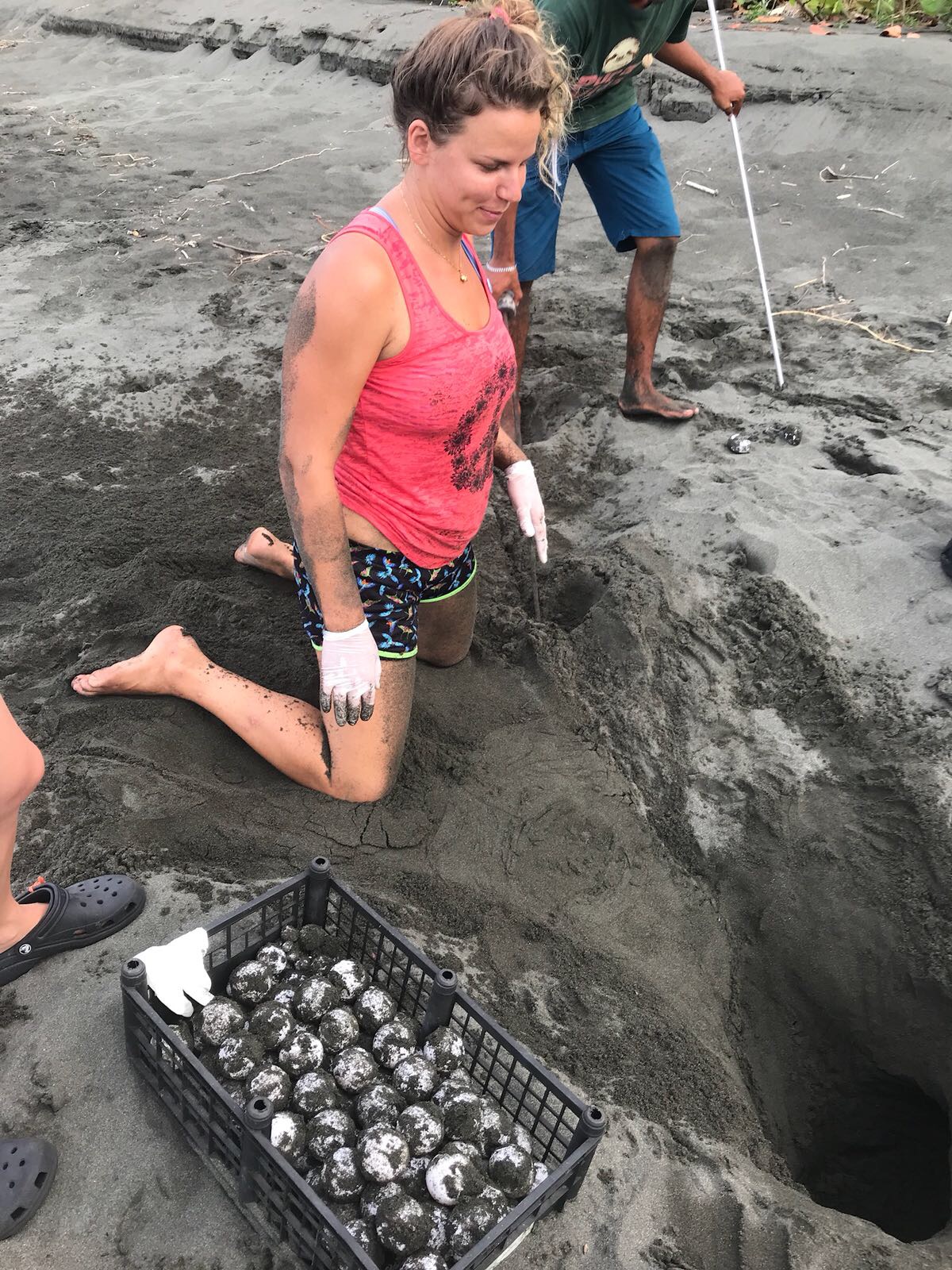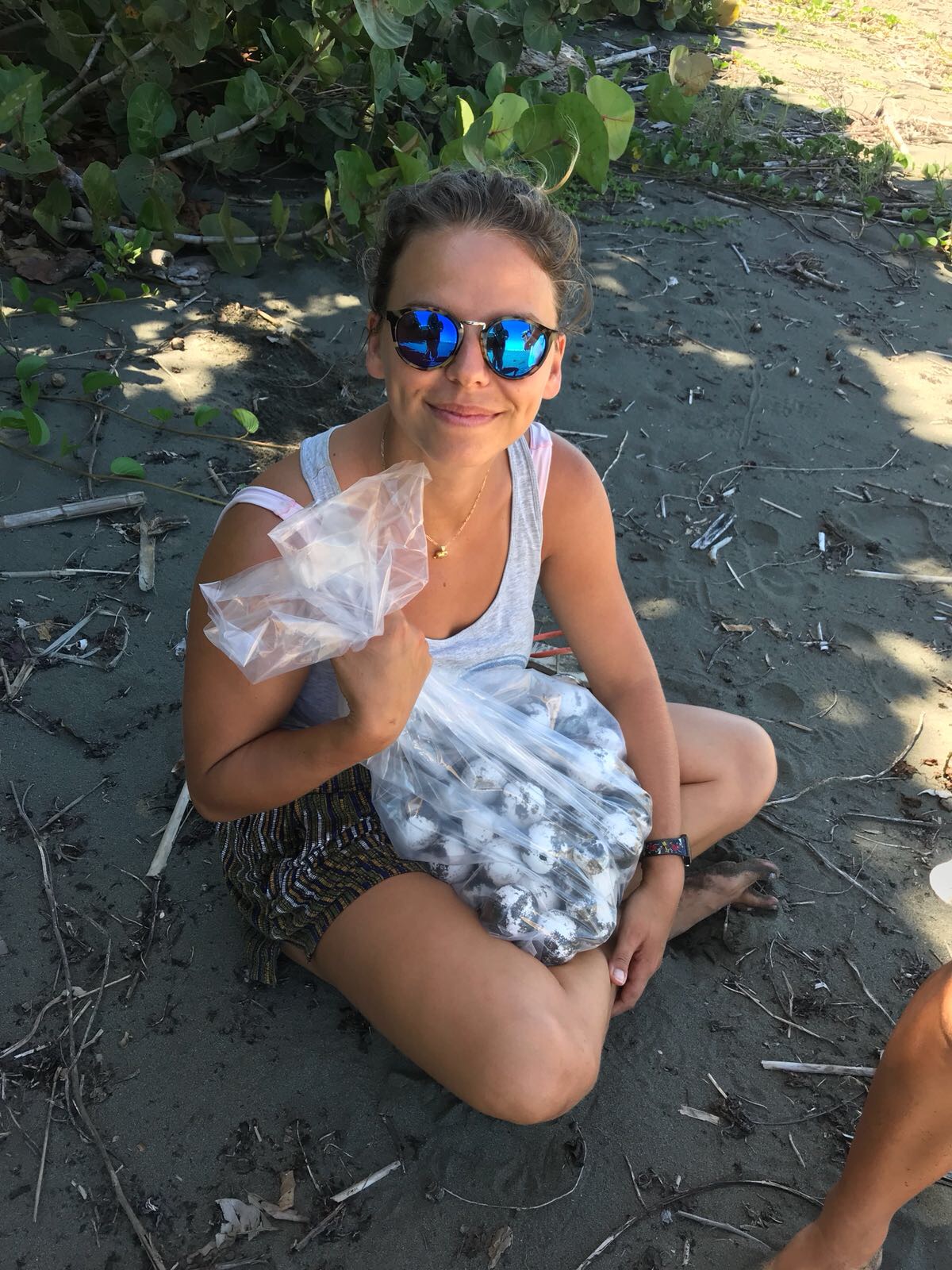Turtles & travel: Sarah Ghys
BY MADS ST CLAIRE
This week we caught up with marine biologist, Sarah Ghys. From sea turtles to cetaceans, keep reading to find out about her research, diving and how she caught the travel bug…
Hey Sarah, thanks for joining the G40 interview series! Want to start off by telling us a little about yourself?
Thank you for having me! I am a 25 year-old wildlife lover, passionate about wildlife, conservation, oceans, wildlife photography, travelling and diving. I’m Belgian and Swiss, grew up in the Ivory Coast until the age of 6, attended university in the UK and my home base is in Geneva, Switzerland.
So why marine biology?
I’ve always been interested in wildlife; I’m fascinated by marine megafauna and have loved oceans and beaches my whole life. I always knew I wanted to work with animals and somehow help species to thrive on earth. At university, I decided I wanted to work in the field of wildlife conservation.
I am inspired by so many different groups of people, including wildlife researchers and conservationists, wildlife photographers and filmmakers, people who fight against ocean plastic pollution and advocates for nature.
What was your journey into marine biology like?
At school, my favourite subject was biology. I attended university in England, to study a BSc in Bioveterinary Sciences at the Royal Veterinary College in London and an MSc in Global Wildlife Health and Conservation at the University of Bristol. I am interested in marine megafauna research and conservation and this fascination has brought me to study whales and dolphins in Haiti, volunteer for a marine turtle conservation organisation in Kenya and work as a volunteer research assistant for the sea turtle nesting monitoring programme in Pacuare Reserve, Costa Rica. I have loved each of my experiences working with wildlife and think there is nothing more humbling, exciting and fulfilling than spending a moment in the presence of magnificent wild creatures. It is a challenging field, especially financially, but I am so thankful and proud to be doing this work and nothing makes me happier.
Let’s talk Haiti. Could you tell us a bit about your experience there collecting data for your MSc?
I went to Haiti to collect data for my dissertation about marine mammals in the Gulf of Gonave. I collaborated with the Haiti Ocean Project to do a baseline study about whales and dolphins in the area. From a research boat, we collected data on species sighted, group size, water depth at sighting locations and GPS coordinates. Great experience!
I had never been to Haiti before and in spite of the country’s challenges and my friends and family being worried and perplexed about this choice of destination, I still decided to go see for myself. I am so happy I went because I loved Haiti! I discovered some of the kindest and most generous people, mesmerising marine wildlife and some picture-perfect, postcard-worthy Caribbean white sand beaches. My advice: keep exploring new places and go see for yourself. You might just find a piece of paradise that is totally worth seeing!
Following your MSc, you interned with Watamu Turtle Watch, Kenya. What did you learn from this internship?
My main task was working on data validation for the turtle Bycatch Release Programme. I also participated in sea turtle releases, collected biometric data on green and hawksbill turtles, took photographs of rescued turtles for the photo ID database and applied metal tags. I helped out in the turtle rehabilitation centre and even took turtles from the rehab for sea baths in the ocean, swimming next to them while they practised how to swim correctly again! I also did a few sea turtle and mangrove anti-poaching patrols as well as turtle nesting beach patrols and nest monitoring activities.
The most important lesson I learned is the importance of education and community outreach programmes. WTW works closely with the local fishermen community and developed an incentive-based collaboration, giving fishermen a small financial reward for reporting accidentally caught turtles. They have successfully reduced poaching incidence and are educating future generations of conservationists.
You’ve worked with sea turtles in a number of places – what are the contemporary threats to these creatures? Are these threats the same in every location or are they area specific?
From my experiences working in Kenya and Costa Rica, I was confronted to two main threats to turtles: poaching and plastic. Unfortunately, the poaching threat is tied in with complicated issues like tradition and low income. Local people struggling with poverty can make good money from selling turtle parts or turtle eggs. While travelling around Costa Rica, I personally witnessed a small food stall with a sign saying ‘turtle eggs available’. This was deeply shocking to me, especially because I was working there to protect turtles. Plastic pollution is one of the greatest problems for our oceans. It is everywhere! In Kenya, turtles brought to our rehab centre often had ingested plastic and therefore struggled to swim and feed themselves properly. Other threats include collisions with boats, entanglement in fishing nets, fishing hook injuries and fibropapillomatosis. In general, threats to turtles are a global issue rather than area specific.
You’re also a diver and a traveller – tell us a little about this journey!
I absolutely love travelling and diving! So far, I have travelled in 32 countries in the world, across Africa, Asia, Australia, the Caribbean, Central America, Europe and North America. I am constantly longing for my next adventure and always have a hunger for travelling and discovering new places. There are so many places in the world that I want to see!
As for diving, I did my Open Water Diver certification in Indonesia, at 16, and since then, have dived in Thailand, Kenya, at the Great Barrier Reef and most recently in Costa Rica, where I completed my Advanced OW qualification. My most memorable encounters while diving include a whale shark, giant manta rays, turtles and sharks! In the future, I would love for diving to be part of my wildlife research and conservation work, for example by collecting data on marine megafauna while diving.
My advice: keep exploring new places and go see for yourself. You might just find a piece of paradise that is totally worth seeing!
What’s your personal experience of being a female in marine science? And what do you think the future holds for women in your field?
Being a female in marine science isn’t an impediment at all for me. In fact, I was recently offered a job at Pacuare Reserve in Costa Rica as an assistant director of research, which is a huge step up for me!
I know some amazing and inspiring women working in marine science. I think that some of women’s strengths for marine science are compassion, drive and determination to make a difference for nature and wildlife. It is great to see so many women interested in marine science and this leaves me hopeful for the future. I love being part of a group like Girls in Ocean Science, which showcases such a great variety of specialists within the field of marine science. It definitely makes me feel empowered and proud to be one of the women in the world making a difference for our oceans and marine wildlife.
Favourite quote?
One of my favourite quotes is: ‘The greatest threat to our planet is the belief that someone else will save it.’ – Robert Swan





